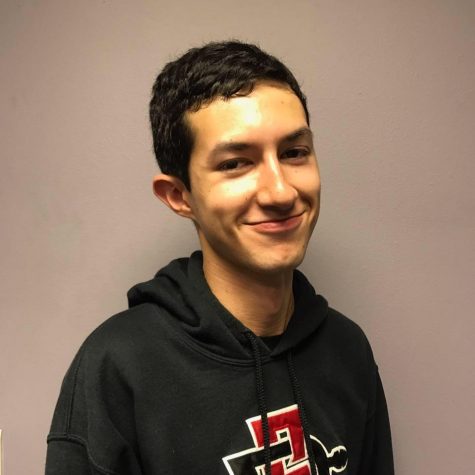Disgust. Anger. Exasperation. These are some of the things I felt when my phone buzzed on Jan. 22 to notify me the Supreme Court had lifted the injunctions that were blocking the president’s decision to ban transgender people from the military.
I was disappointed, but not surprised. Many saw the 2016 election as a mandate to roll back rights and equal treatment that had only just begun to be provided to the LGBTQ community. It was less than four years ago the Supreme Court voted to uphold same-sex marriage throughout the nation.
Haven’t we already been through this? I thought.
Or at least I’ve been through it. My mom transitioned when I was 10 years old.
He was a former U.S. Air Force officer, and was serving in the California Air National Guard when he made the decision. At that time, in 2008, all trans service members had to be discharged if they underwent surgery, and my mom received an honorable discharge before going through what’s known as “top” surgery.
I don’t remember any specific conversation where it was explained to me or my brothers — 4 and 8 at the time — what was happening, though I’m sure there must have been one. Truth be told, I don’t remember thinking very much about it. I already knew what being gay was — it’s what my mom had been since I was 6 or 7.
To me, the whole trans thing didn’t seem like a huge issue. My mom was going to get a deeper voice and not get weird looks when walking around with my stepmother. Big deal.
And so my mom became “Daniel” — taken from his birth middle name, Danielle. We tried calling him a couple of different versions of “dad,” but eventually decided calling him by his new first name was simpler.
And that was that. Daniel was still the same person mom had been. It’s something that was extremely evident when I watched Daniel’s YouTube videos of his transition for the first time in years. I admit it was jarring to click on his first video and hear my mother’s very female voice. But when I continued watching, I saw the same mannerisms, the same jokes, the same light profanity that was trademark of our household.
When I tell people anything about my childhood, the part where I describe having a trans mom often elicits the most shock. But I’m not sure that it even cracks the top five things that influenced me most as a kid.
Divorce? OK, that’s pretty scarring. But watching the person you knew as mom transition into a truer and happier version of himself? That’s supposed to be damaging? The only damaging thing about that is when the people who claim to care and the other people around you make you feel like you should be ashamed of your mother.
Becoming trans wasn’t something my mom had always considered. Trans people have always existed, of course, but it wasn’t a common subject to hear about as recently as a decade ago. Daniel stumbled across the possibility while browsing the internet, and once he did, he couldn’t stop thinking about it.
“I was like, ‘oh my god, this would be awesome, because I never really wanted to be a girl anyway,’” my mom, who described himself as a tomboy in his childhood, told me over the phone the other night. “I was always thinking the little girl thing was stupid.”
Sometimes, people tell me I “lost” my mom. I didn’t. My mom with male pronouns is still the exact same person he was with female pronouns.
And that’s why the president’s initial tweet in July 2017 about how much “disruption” trans people would cause in the military struck me as odd. What disruption could they cause if having a trans mom didn’t even disrupt my family dynamic? What damage is done to “unit cohesion” by referring to the same qualified service member with their preferred pronouns instead of the ones they were born being called?
“It was still considered a mental disorder that was not compatible with the military,” my mom said of his forced discharge. “I would have stayed in, though. I enjoyed serving to a certain extent — I miss it a lot. I considered going back in briefly before Trump decided that, you know, (I’m) not worthy to serve.”
Still, disappointing as the 2016 election and the Supreme Court decision may have been, we are making progress. Slow, discontinuous progress, but progress nonetheless. Back in middle school, I stopped telling my classmates my mom was trans after I was once met with a disgusted shriek of “why do you tell people that?” from a girl who sat next to me. Now, here I am writing about it in the newspaper that I’m the editor in chief of. Beat that with a stick.








